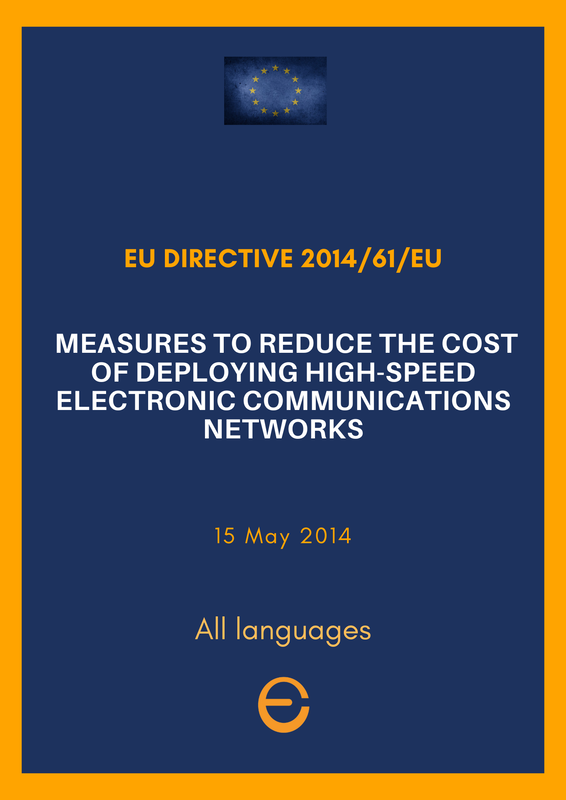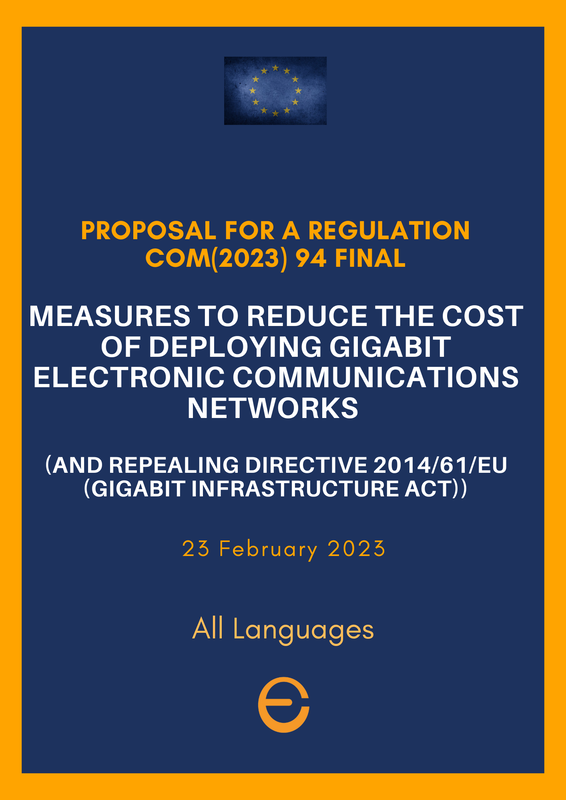|
Brussels, |
|
DIGITAL IN ECONOMY
Connectivity
The EU's goal is to become the most connected continent by 2030. For this end, EU has taken action in a range of areas to improve connectivity
|
Connectivity is a crucial aspect, enabling us to stay in touch and connect with others regardless of distance. This importance was magnified during the COVID-19 pandemic when physical separation was prevalent.
Through connectivity, we can reach out and interact with individuals worldwide. It empowers us with limitless possibilities, such as accessing news in real-time, participating in online classes, acquiring new skills, seeking guidance from experts, and engaging in global marketplaces. The EU has taken several measures to enhance connectivity. It abolished roaming charges within the EU, allowing travelers to utilize their mobile subscriptions without extra costs. The WiFi4EU initiative supported the installation of free Wi-Fi hotspots in local communities. Moreover, the EU offers funding, technical guidance, and expert collaboration to assist public administrations and businesses in improving network coverage and implementing 5G networks across Europe. Currently, the focus is on establishing harmonized rules for connectivity services throughout Europe, ensuring that EU citizens can enjoy consistent benefits regardless of their location. EU actions also aim to foster consumer choice, reduce costs, and elevate service standards. |
On 15 May 2014, the EU issues the Directive 2014/61/EU on measures to reduce the cost of deploying high-speed electronic communications networks.
Actions taken at EU level include:
The main pillars of the directive are as follows:
Providing such information will ensure that the costs of these projects are kept to a minimum (for example by accessing physical infrastructure that already exists and by coordinating engineering works). The access to this minimum information may be limited for the following reasons:
Permit granting
Buildings ready to deploy high-speed networks
- introducing the European electronic communications code, which sets clear rules applicable across all of Europe
- supporting wireless networks such as 5G through the radio spectrum policy programme
- ending of roaming charges in the EU, and a price-cap on communications within the EU
- leading global discussions on Internet development and governance
The main pillars of the directive are as follows:
- .Access to existing physical infrastructure
- EU countries should ensure that network operators* (telecoms, as well as energy, transport and water) give telecoms operators access to their physical infrastructure.
- Network operators are required to give access to their physical infrastructure, on reasonable terms and conditions, including price.
- Coordination of civil works
- EU countries should ensure that network operators negotiate agreements with telecoms operators in order to coordinate civil works.
- If this work is financed from the public purse, network operators have to meet any reasonable and timely request for coordination as long as this will not entail any additional costs and will not impede coordination control. This implies that any incremental costs associated with co-deployment must be recovered, or else the request could be denied.
- For negotiating agreement on the coordination of civil works, EU countries shall require any network operator to make available, upon the request of a provider of public communications networks, certain minimum information concerning ongoing or planned civil works: (a) the location and the type of works; (b) the network elements involved; (c) the estimated date for starting the works and their duration; and (d) a contact point.
- Transparency
In order to improve the deployment process, EU countries must ensure that the undertakings deploying ECN have access to a minimum amount of information about the existing physical infrastructure, such as:- location and route,
- type/use of infrastructure,
- a contact point.
Providing such information will ensure that the costs of these projects are kept to a minimum (for example by accessing physical infrastructure that already exists and by coordinating engineering works). The access to this minimum information may be limited for the following reasons:
- security of the networks and their integrity;
- national security;
- public health or safety; and
- confidentiality or operating and business secrets.
Permit granting
- EU countries have to ensure that all relevant information concerning conditions and procedures for granting permits for civil works needed for the deployment of ECN must be available via a single information point.
- EU countries may allow permit applications to be submitted electronically.
- Permit decisions should be made within 4 months and any refusal to grant a permit should be fully justified.
Buildings ready to deploy high-speed networks
- New buildings and major renovations must be equipped with physical infrastructure (such as mini-ducts) capable of hosting high-speed ECN. Constructions must have an access point and be easily accessible by the providers of public communications networks. This must be done in a technology-neutral way (i.e. the infrastructure should neither require nor assume a particular technology). Exemptions are possible (for example for monuments or holiday houses).
- The providers have the right to reach the access point under fair and non-discriminatory terms and conditions.
Proposal to reduce the cost of deploying gigabit electronic communications networks and repealing Directive 2014/61/EU (GIA - Gigabit Infrastructure Act)
|
On 23 February 2023, the Commission submitted a proposal on measures to reduce the cost of deploying gigabit electronic communications networks and repealing Directive 2014/61/EU (gigabit infrastructure act).
Key aims of the GIA:
|
The Industry Committee of the European Parliament already adopted its negotiating position on the GIA, focusing on cost reduction and reducing red tape for the deployment of high-speed networks.
ITRE (Industry, Research and Energy) Committee of the European Parliament voted for specific measures as part of their position on the Gigabit Infrastructure Act:
- Simplification of Procedures: The Act would simplify and expedite administrative procedures for granting permits, reducing bureaucratic hurdles for operators and national administrations.
- Infrastructure Sharing: Encouraging the sharing of existing physical infrastructures to minimize civil engineering works and accelerate the rollout of high-speed networks.
- Rural and Remote Area Coverage: Introducing measures to incentivize the extension of coverage to less populated areas.
- Abolition of Intra-EU Communication Fees: Introducing provisions for the elimination of fees for intra-EU calls and SMS, making digital communication more accessible.
The Council’s common positions maintains the general thrust of the Commission proposal. However, based on numerous requests by member states, the Council amended some aspects of the proposal, as follows:
- the notion of ‘tacit approval’ was deleted
- an exception for a transitional period for smaller municipalities was included
- the factors when calculating fair conditions for access were clarified
- it was also clarified that not only fibre can be used to reach very high capacity
- a number of carve-outs for critical national infrastructure were included in the text.
The text of the Council’s position ensures overall that member states have a wide autonomy in issuing more detailed rules and can go further on several important elements of this new regulation establishing a minimum harmonisation on measures to reduce the cost of gigabit electronic communications networks.
Following today’s adoption of the Council’s negotiating mandate (general approach), the Spanish presidency will be able to enter talks with the European Parliament (‘trilogues’) and intends to make as much progress as possible in these negotiations until the end of the year.



